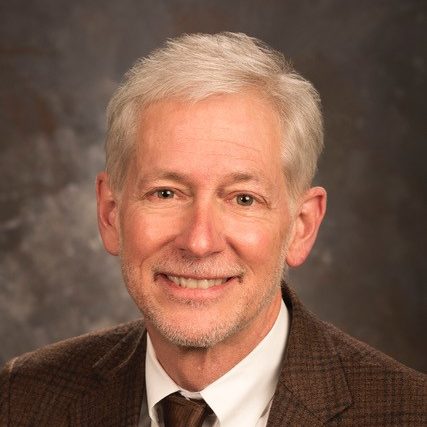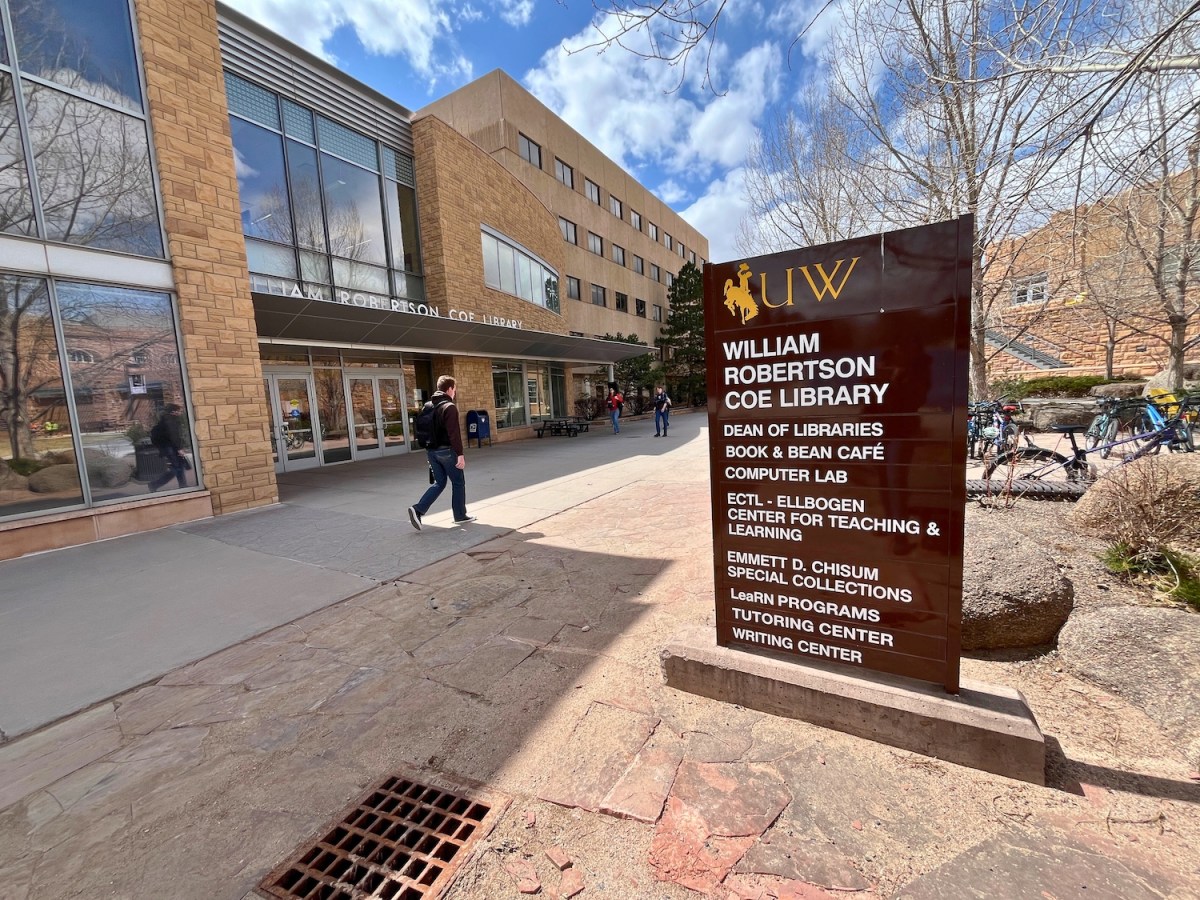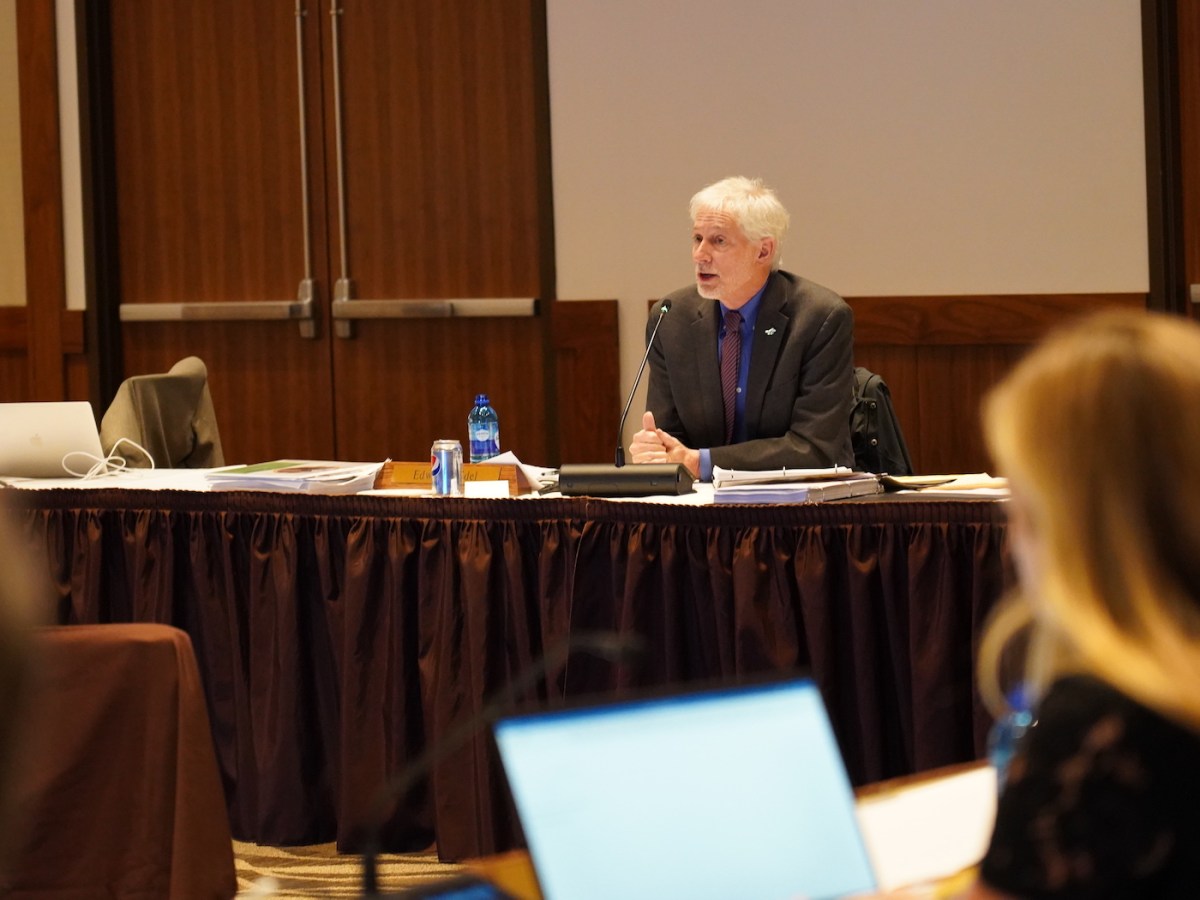University of Wyoming officials omitted notable internal findings from their official public response to the demotion of a well-liked dean and the ensuing public outrage earlier this month, newly-released records show.
When the Board of Trustees demoted Dean Cameron Wright, they said it was because of poor performance towards the state’s goal of bringing the College of Engineering and Physical Sciences into the top tier of such schools nationally.
Wright’s supporters, however, argued Wright’s demotion was instead retaliation for his opposition to UW President Ed Seidel’s efforts to shift $500,000 from the engineering school into the budget of the School of Computing. That school is a Seidel initiative directed by the president’s romantic partner, Gabrielle Allen.
As furor in the campus community mounted and university officials defended the demotion, they cited an investigation conducted last October by the university’s Office of General Counsel. That review found that Seidel had not violated any conflict of interest rules in advocating for his partner’s college.
The university shared that finding with reporters amid the controversy. But, records released Tuesday show the university’s statement left out another finding — that Seidel’s involvement in shaping the School of Computing’s budget and policy could lead to “reputational harm” to the president, his partner and the university.

And while university officials noted the board had “unanimously agreed” that Seidel hadn’t violated a conflict of interest plan governing his actions with the school, that wasn’t the entire story either. The complete record shows some trustees were concerned about the situation.
“A minority of the Board strongly feels that the perception of a [Conflict of Interest] and the appearance of impropriety is just as damaging and needs to be mindfully addressed,” reads a Jan. 24 document outlining the board’s response to the review.
University officials on Tuesday stood by their previous statements.
“In drafting the university’s [April 3] statement – done in a short period of time in response to reporter questions, and summarizing voluminous records you have now seen – there was no intent to leave out meaningful information,” UW spokesperson Chad Baldwin wrote to WyoFile on Tuesday. “The statement also pointed out that further information would be disclosed in response to a public records request.”
Incomplete picture?
Strikingly, the university’s public statement, first provided to WyoFile on April 3, left out those two findings but quoted friendlier conclusions that came directly before them.
On Tuesday, the school released the complete records, with some redactions, in response to a request first filed by the Laramie Reporter, an online news organization. Those records show the omissions in the university’s April 3 statement.
In that statement, school officials wrote:
“The University found that since the President did not direct additional finances to [the School of Computing], nor did he affect or direct any academic policy other than to reinforce the original budget and intent of the [computing school], there is likely not an actual violation of the President’s COI plan.”
That sentence comes from the office of general counsel’s analysis. The complete paragraph is as follows [emphasis inserted by WyoFile highlights the omitted findings]:
“Since the President did not direct additional finances to [the School of Computing] SOC, nor did he affect or direct any academic policy other than to reinforce the original budget and intent of the SOC, there is likely not an actual violation of the President’s COI plan. However, his continued involvement could lead to a potential or apparent conflict of interest and cause reputational harm to the President, Director Allen, and the University.”
The university’s statement continued:
“The Board of Trustees unanimously agreed that the President has not violated his [conflict of interest] Management Plan and strongly supports the mission and vision of the [School of Computing] as a means to carry out its land grant mission, enhance the Tier 1 Engineering initiative, provide for interdisciplinary teaching, research, service, and innovation opportunities across all colleges, and boost student success.”
That sentence came from the conclusion section of the board’s response to the conflict of interest review. The complete paragraph is as follows [emphasis inserted by WyoFile highlights the omitted findings]:
“The Board unanimously agrees that the President has not violated his [conflict of interest] Management Plan and strongly supports the mission and vision of the [School of Computing] as a means to carry out its land grant mission, enhance the Tier 1 Engineering initiative, provide for interdisciplinary teaching, research, service, and innovation opportunities across all colleges, and boost student success. A majority of the Board maintains that there is also no apparent conflict of interest and contends that the President should be able to discuss [School of Computing] as an initiative, whether or not his partner is the Director. However, a minority of the Board strongly feels that perception of a [conflict of interest] and the appearance of impropriety is just as damaging and needs to be mindfully addressed and reaffirms the University’s recommendation that the President refrain from any involvement with [School of Computing] while his partner is the Director.”
The dissent did not change the relevant conclusion of the board’s findings, Baldwin said Tuesday. “The records do note that some trustees had been concerned about the potential appearance of a conflict, but that’s not the same as concluding [Seidel] had violated the conflict plan,” he said.
Last November, the month after the general counsel completed its review, Allen told the board she would stop directing the computing school in August 2025. The decision came “after months of sustained reputational attacks,” she wrote in an April 7 letter to UW faculty senate leaders that was obtained by WyoFile.
Trustee response
The vote to demote Wright came after a closed-door executive session, so there’s no public record on whether the board was united in its choice, or whether the split captured in the conflict of interest review carried into that meeting. The board’s vote was unanimous, without public discussion. Amid the consternation over Wright’s demotion, the board has presented a united front.
Trustees also downplayed Wright’s objections to Seidel’s proposed transfer of $500,000 from the engineering college’s control to the computing school. Seidel dropped that proposal after Wright objected.
“We reiterate that the decision to remove the dean was based solely on his performance — not on the dean’s objections to a possible, relatively minor proposed funding shift,” the trustees said in an April 8 statement.
Events of the last two weeks appear to justify the concerns of those trustees who feared even the perception of a conflict of interest could damage the university. Since Wright was demoted and news of his opposition to the $500,000 transfer broke — including the existence of a letter from two Laramie lawmakers last fall to Gov. Mark Gordon, expressing concern about retaliation against Wright — two major donors to the university have publicly announced they are reconsidering their financial support.
On campus, the deans of the university’s other colleges, except Allen, wrote a letter to Seidel and the trustees expressing “deep concern for the trajectory of the university.” On April 7, an overwhelming majority of the faculty senate backed a vote of “no confidence” in Seidel’s leadership.
In response to those actions, the trustees last week announced the formation of a new committee to examine and propose solutions to the crisis of confidence in leadership.
Clarification: This story has been updated to clarify the board’s procedures in demoting Wright. —Ed.





That “minority of the Board” of Trustees that “strongly feels that perception of a [conflict of interest] and the appearance of impropriety is just as damaging…” knows what it is doing and is upholding the University’s reputation. Kudos to them, operating as they are in a toxic environment.
The balance of the Board (the majority) should resign or be relieved of their positions by the Governor. Ideally resignations, which would at least show some individual integrity they could shuffle home with despite the damage they’ve done to the University over many years.
Some of these Board members were likely part of the true nadir of the Board’s existence that saw 4 or 5 different University Presidents slither through over a period of only 2 years, but took no responsibility for those rapid-fire failures!
As often happens…the administration coverup attempt undermines the saintly narrative. And the pathetic excuses of not having enough time to provide a full record to the public, the personal relationship with a subordinate, a dissenter punished, and money changing hands, compounds the coverup and absolutely undermines the public trust in the board and administration. There is a reason why the military disallows a senior officer from dating a fellow officer in his chain of command.
The State of Wyoming public relies on the University of Wyoming to operate in good faith. Conducting a conflict of interest investigation of the president internally through offices that either directly or indirectly report to the president, is indeed, not in good faith. It may even be referred to as a conflict of interest.
Clown show.
A few types of lies:
Direct lies.
Lies of omission.
Fun that now UW and Columbia leadership are aligned in their cowardice, so in the end UW achieved Tier 1 peer status in something. WY’s young people deserve so much better. Between the lack of integrity on full display by the UW council and the rightwing wokeism, there is little wonder our best and brightest are fleeing the state.
Thanks for the excellent reporting Andrew and WyoFile. I served on the UWyo Foundation Board from 2010 – 2014. There was a lot of fuss being made at that time over the Engineering College becoming Tier 1. It was a dream of Phil Nicholas and several other politicians (one of whom is now a Trustee). Everyone knew that it was likely an unobtainable goal, UWyo simply did not have the faculty, student body or the commitment of resources that it would take. It seems fishy that that the Trustees would use the failure to achieve Tier 1 as the grounds for demoting a well respected Dean. Mostly this recent sad chapter looks like the U. caught up in overt conflicts of interest between the President, his partner, the College and the Trustees, all of which could have been predicted and should never have been allowed to occur. You couple all of this with Trustees who have been serving way too long, are old, tired and have lost the imagination and insight it takes to run a modern university. The President and Chad Baldwin need to go, and one more useless University committee should be dumped.